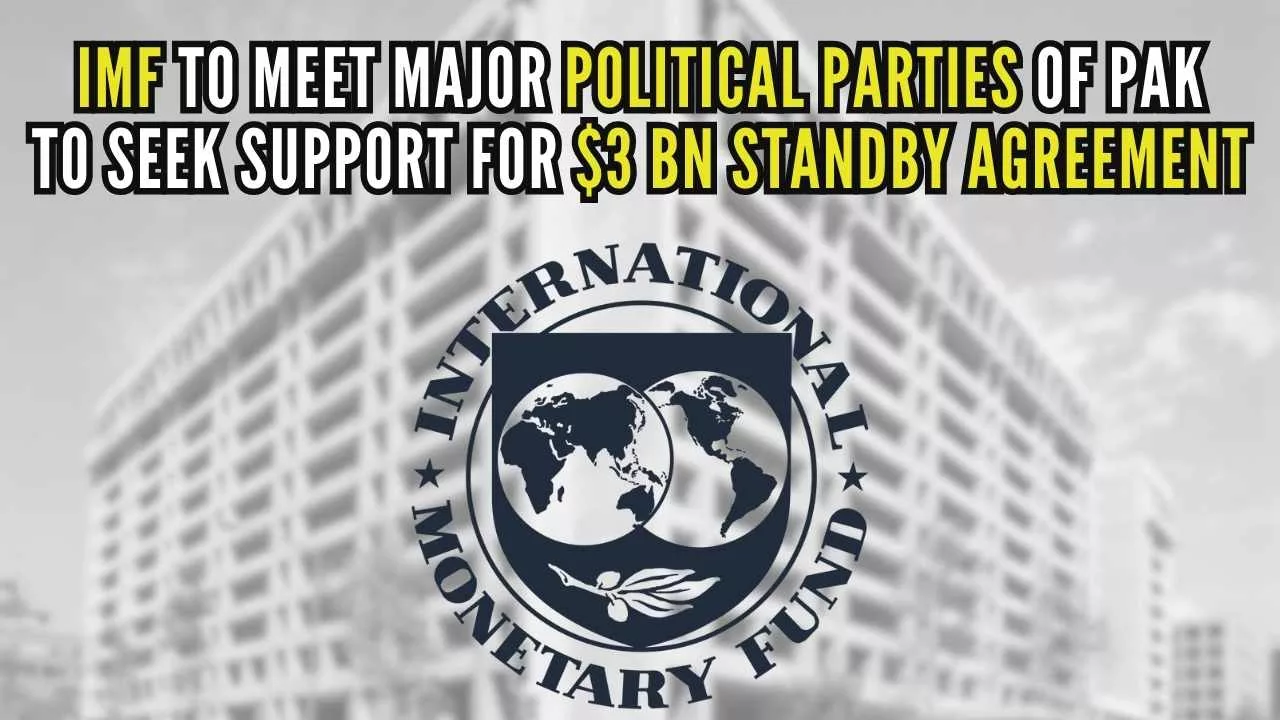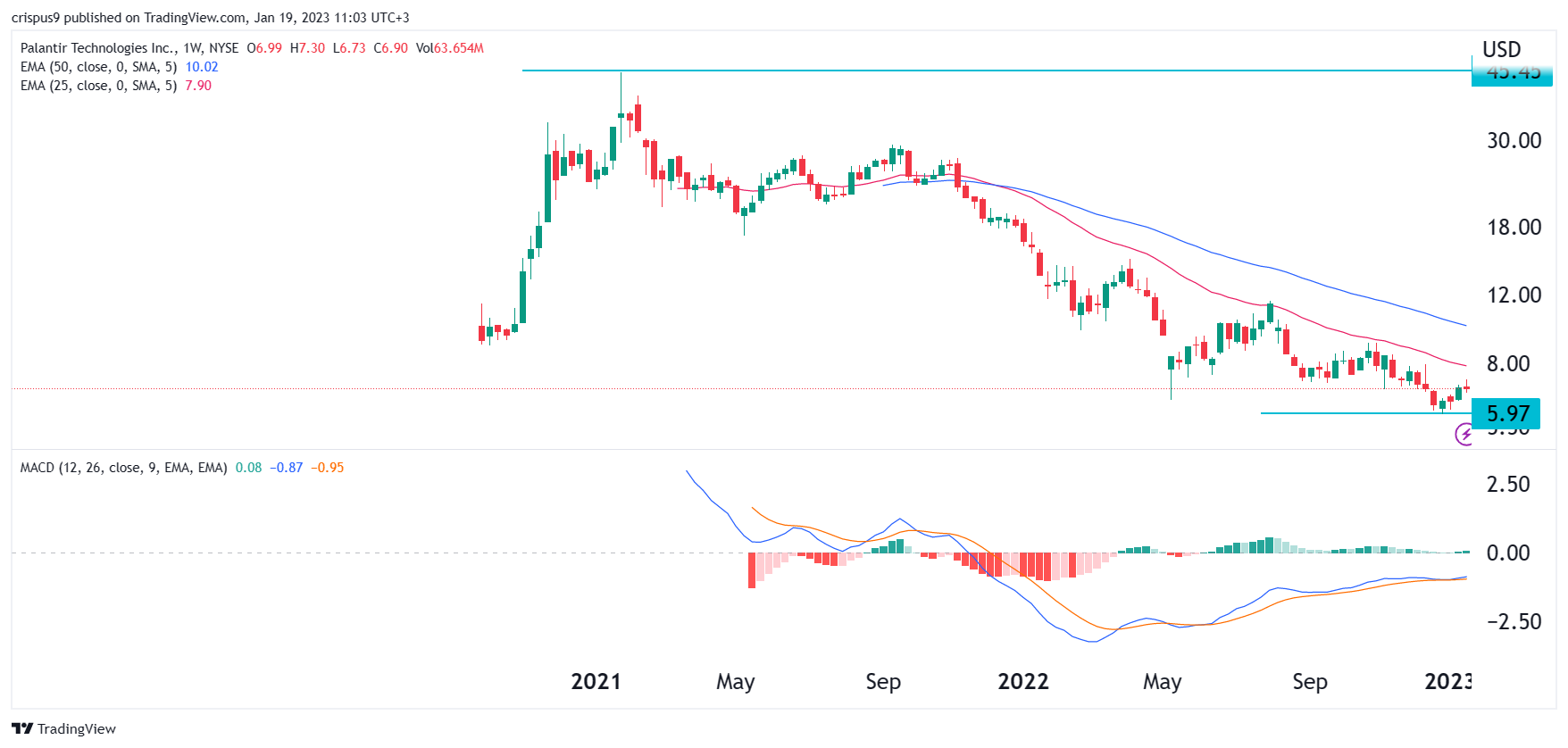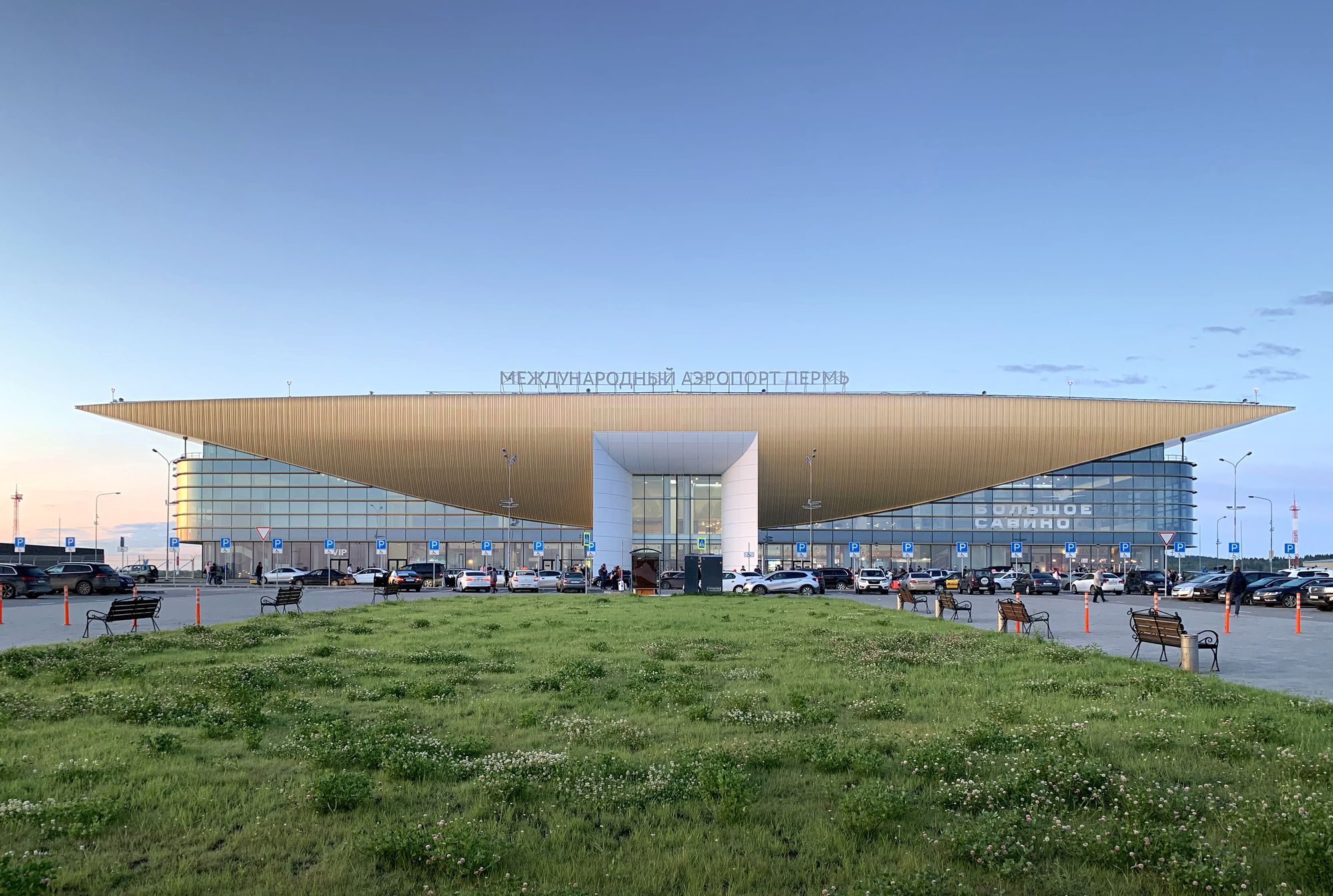Pakistan's $1.3 Billion IMF Package Under Review: India Tensions And Current Events

Table of Contents
The IMF's Conditions and Pakistan's Compliance
The International Monetary Fund (IMF) has attached several stringent conditions to the release of the bailout funds, demanding significant reforms to Pakistan's economy. These conditions aim to stabilize the economy and prevent future crises. Meeting these conditions is crucial for securing the full amount of the Pakistan IMF bailout package.
Fiscal Reforms and Austerity Measures
The IMF demands strict fiscal discipline, requiring Pakistan to implement significant tax reforms and drastic expenditure cuts. This involves tackling tax evasion, broadening the tax base, and reducing government spending. The political challenges in implementing these measures are substantial, given the resistance from powerful vested interests and the potential for social unrest.
- Increased taxation: The government plans to increase taxes on various goods and services to boost revenue.
- Reduced fuel subsidies: Cutting fuel subsidies, a politically sensitive issue, is aimed at reducing government expenditure.
- Public sector reforms: Restructuring inefficient state-owned enterprises to improve their financial health.
The public reaction to these austerity measures is likely to be mixed, with potential for significant social unrest, especially amongst the most vulnerable segments of society. The government needs a robust communication strategy to explain the necessity of these measures and mitigate public discontent.
Structural Reforms and Economic Diversification
Beyond fiscal reforms, the IMF pushes for structural reforms aimed at improving Pakistan's long-term economic competitiveness. This includes diversifying the economy beyond its current reliance on agriculture and remittances, promoting growth in other sectors, and improving the overall business environment.
- Investment in technology: Promoting the growth of the technology sector, creating high-skilled jobs, and driving innovation.
- Boosting manufacturing: Investing in manufacturing infrastructure and attracting foreign investment to create export-oriented industries.
- Improving ease of doing business: Streamlining regulations, reducing bureaucratic hurdles, and creating a more investor-friendly climate.
The challenge lies in overcoming bureaucratic hurdles and attracting sufficient investment to fuel growth in these sectors. Implementing these structural reforms requires a concerted effort from the government, the private sector, and international partners.
The Impact of India-Pakistan Tensions
The ongoing tensions between India and Pakistan significantly impact the country's economic stability and its ability to secure and utilize the Pakistan IMF bailout package. The heightened military spending necessitated by these tensions diverts resources from vital social programs and economic development initiatives.
Military Spending and Economic Strain
Escalating tensions with India lead to increased military spending, diverting considerable resources from crucial sectors such as education, healthcare, and infrastructure development. This represents a significant opportunity cost, hindering long-term economic growth and exacerbating existing economic challenges.
- Defense budget allocation: A large portion of the national budget is allocated to defense, limiting funds available for other critical areas.
- Reduced investment in human capital: Less investment in education and healthcare hampers the development of a skilled workforce.
- Strain on foreign exchange reserves: Military spending can further deplete already dwindling foreign exchange reserves.
Geopolitical Implications and Foreign Investment
Regional instability resulting from India-Pakistan tensions negatively affects foreign investment and international aid. International investors are hesitant to commit capital to a region perceived as politically unstable, further impacting Pakistan's economic prospects.
- Reduced foreign direct investment (FDI): Political instability deters foreign investors, limiting access to crucial capital for development.
- Decreased international aid: Donors might hesitate to provide aid to a country entangled in geopolitical conflicts.
- Impact on GDP growth: The combination of reduced investment and aid can significantly affect overall GDP growth.
Domestic Political Landscape and Economic Stability
Pakistan's domestic political landscape plays a significant role in determining its capacity to implement the necessary economic reforms and effectively utilize the Pakistan IMF bailout package. Political instability undermines economic policymaking and creates uncertainty for investors.
Political Instability and Economic Policy
The frequent changes in government and policy create uncertainty, making it challenging to implement consistent economic reforms. This instability hinders investor confidence and makes it difficult to attract foreign investment, hindering the overall effectiveness of the bailout package.
- Policy inconsistency: Frequent changes in government lead to unpredictable and inconsistent economic policies.
- Lack of continuity: Changes in leadership often result in a lack of continuity in long-term development plans.
- Erosion of investor confidence: Political instability discourages foreign and domestic investment.
Social and Economic Inequality
Austerity measures imposed as part of the IMF's conditions disproportionately affect the most vulnerable segments of the population, potentially leading to social unrest and further instability. This inequality exacerbates existing social tensions, potentially hindering the country’s progress towards stability.
- Rising poverty rates: Austerity measures can lead to job losses and reduced access to essential services, increasing poverty.
- Increased social unrest: Widespread dissatisfaction with economic policies can trigger social unrest and political instability.
- Widening income gap: Austerity measures often exacerbate existing inequalities, leading to a widening gap between the rich and poor.
Conclusion
The review of Pakistan's $1.3 billion IMF bailout package is a critical juncture for the nation. The success of the review hinges not only on Pakistan's ability to meet the IMF's conditions but also on addressing the complex interplay of regional tensions and internal political dynamics. The implementation of crucial fiscal and structural reforms, along with a concerted effort to de-escalate tensions with India, is vital for securing economic stability and ensuring the long-term success of the Pakistan IMF bailout package. Understanding the intricacies of the Pakistan IMF bailout is crucial for anyone following the evolving economic and political landscape of the region. Stay informed and continue to monitor developments related to the Pakistan IMF bailout package for further updates.

Featured Posts
-
 Palantir Stock Prediction 2 Potential Investments For Higher Returns In 3 Years
May 09, 2025
Palantir Stock Prediction 2 Potential Investments For Higher Returns In 3 Years
May 09, 2025 -
 Aeroport Permi Situatsiya S Reysami Posle Snegopada
May 09, 2025
Aeroport Permi Situatsiya S Reysami Posle Snegopada
May 09, 2025 -
 Uk Visa Crackdown Stricter Rules For Work And Student Visas
May 09, 2025
Uk Visa Crackdown Stricter Rules For Work And Student Visas
May 09, 2025 -
 Draisaitl Injury Update Oilers Star Expected Back For Playoffs
May 09, 2025
Draisaitl Injury Update Oilers Star Expected Back For Playoffs
May 09, 2025 -
 2025 Iditarod Kicks Off In Anchorage Downtown Filled With Spectators
May 09, 2025
2025 Iditarod Kicks Off In Anchorage Downtown Filled With Spectators
May 09, 2025
